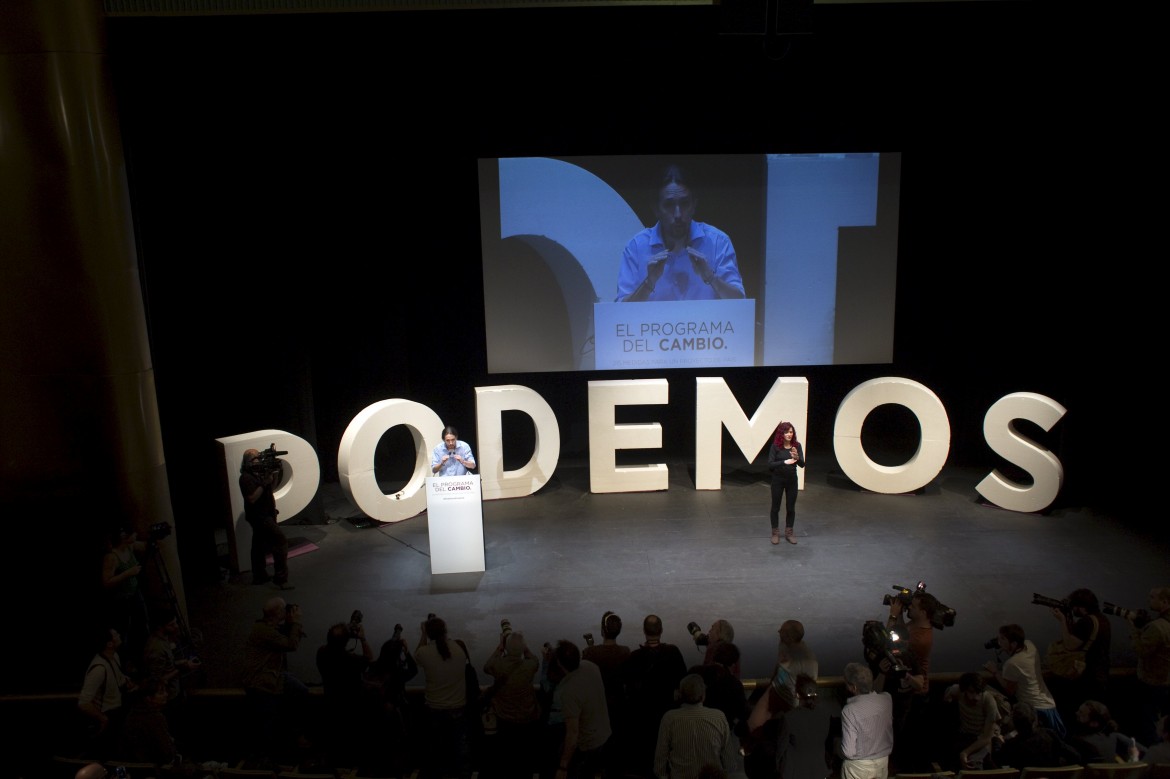Analysis
Now that Iglesias won, everything is fine, right?
Pablo Iglesias retained his position as party leader, but the faction led by Íñigo Errejon retains significant numbers and organization.

Nobody, not even Pablo Iglesias’ staff, was expecting such an astounding victory. There was the risk that the Congress’ outcome would be more nuanced. If Errejon had won, Iglesias would have retired and a very challenging interregnum would have started. If the distance between the two groups had been smaller, the self-destructive debate that had been going on in recent months would have gone on indefinitely. Iglesias’ clear victory was the only outcome that could have allowed a new beginning with a precise action plan.
They established the idea of a party in which the institutional presence is not an end but a means to strengthen the social fabric opposing Rajoy and his liberal policies, providing policy tools, visibility and institutional channels for social initiatives.The Congress members’ main role is as social activists. The presence in Parliament is conceived not only as a lever for the accumulation of social force, but also as a means of communication that demonstrates every day its indomitable resistance to traditional politics.
The term “populist frontier” will no longer appear in political discourse and communication, as Podemos did in 2014-2016. It is retooled as a social frontier, almost like renewed class speech: the victims of the crisis, those excluded from rights, opportunities and perspective, against the political and economic elite. Podemos must be the party that tells the truth, and it is building a popular movement. The “people” are the movement itself, not an entity that is defined, and represented only symbolically. The alliance with Izquierda Unida and regionalist forces is thought of as a historical bloc.
For the one who invented this concept (Gramsci), historical bloc means unity of theory and practice, the convergence of a strategic horizon and concrete historical subjects.
Is it an ideological breakthrough from the Podemos of the previous three years? Only partially. The idea that the up-down fracture is more important than the left-right one is not repudiated.
But there is the belief that the party conceived in 2014 had reached the limits of its growth. Not everything can be achieved with linguistic innovation, communication abilities and institutional effectiveness. A new expansion can only be generated by grafting on this tissue the elements of a mass party: territorial expansion, ties with society and organizational capillarity. It is an addition, not a replacement.
At the Congress, participants chose from more than two ideological options. The clash between Iglesias and Errejon was more prosaic for two reasons. The first is that there was a tactical element at the center of the conflict. The distinction between moderates (Errejon) and radicals (Iglesias) does not explain the debate, which focused on the most effective setting to expand the electorate and win the 2020 elections. The second reason is more prosaic, yet important. In the spring of 2016, Iglesias’ sector realized that Errejon has built a party within the party. He controlled virtually all internal structures. Moreover, it came out that his followers have set up a group on the messenger app Telegram called Mate Pastor (a reference to “scholar’s mate,” a chess strategy that brings checkmate in a few moves).
The Errejon supporters were planning to secure the leadership of the party in the larger regional federations to be able to win the Congress. Iglesias was not to be replaced, but weakened and controlled. After that, conflict broke out. The outcome of the Congress ended this spiral, but it opens up other challenges.
Errejon is the one who thought more than anyone else about organizational structure and electoral campaigns of the party, with Iglesias as ideological figure. This is the real change that emerges from the Congress, which was already evident in the early post-Congress days.
There is already another Podemos. Errejon is now a minority, which will probably be excluded from leadership positions. But it is a strong minority (a third of the party) and very well organized. Observing the behavior displayed here, one cannot rule out that he is already thinking about a rematch, inside or outside the party. The Congress therefore delivers a stronger Podemos, because its secretary general is stronger and the policy is clearer, but there is also a weakness: the difficulty of managing the transition of a component that had been central to the minority position.
Does this take the beauty out of it, compared to what Podemos is? No. There is one way of looking at Podemos’ evolution as a march toward the loss of movement purity (which never existed), inspired by the culture of the Indignados. But Podemos is a party, and in some ways a hyper-party. The problems it faces now are those eternal issues of the construction of a significant political force: territorial homogeneity; temporal continuity; the relationship between the uniqueness of its own message and its internal complexity; the relationship between hegemonic construction and representation of specific social sectors. Addressing these issues is not treason, and it is not necessarily contradictory with the creation of innovative and participatory action models.
Facing them means overcoming the exceptionalism of a specific and unique political phase, one in which an “alien” actor lands in the political space, changes it and tries to stabilize it. No innovation will ever remove these permanent characteristics of political action: “To preserve and to overcome,” Hegel said, are two moments in the same process.
Originally published at https://ilmanifesto.it/iglesias-ha-vinto-ora-svolta-ideologica-e-organizzativa/ on 2017-02-16
